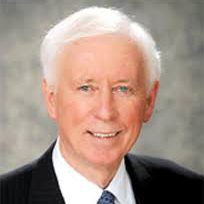President Obama Wins
Late in the evening Tuesday, November 6, the US national media announced that President Obama had won out over Governor Romney and will serve a second four-year term. The final returns from my state of Florida are not yet in, but the current national count shows Obama with 303 electoral votes (270 required to win) to 206 for Romney. President Obama also won the popular vote with 59,725,608 (50%) to 57,098,650 (48%) for Romney.
In a reflection of the changing demographics presented by the diversity here in America, Obama won by large double-digit margins among Hispanics, blacks, single women and young people.
For many Americans the end of this multi-year contest that has filled the airways and print and social media with political rhetoric came none too soon. The following weeks and months will be filled with political experts examining the details of the campaign and making predictions about the implications for our country.
But one thing is clear. Health system reform embodied in the Affordable Care Act (ACA) will move forward. Governor Romney had vowed that, if he won, dismantling ACA would be one of his first actions in office. While it is not clear whether that promise was one that could be easily kept, having Mr. Obama in office provides assurances that this multiyear reform effort will move forward.
Last June the US Supreme Court ruled that one of the more controversial features of the law, the insurance mandate, was constitutional. The next hurdle for the law was considered to be the presidential election. President Obama’s win was therefore in some ways the proverbial “other shoe dropping”.
Full implementation of the ACA will occur over the coming two years, but provisions already in place and on the horizon are significant. Here are some numbers. Because of the law:
0 – patients in 2014 and beyond can be denied insurance coverage because of pre-existing conditions.
3.1 – million young adults up to the age 26 can stay on their parents’ insurance policy.
54 – million Americans have already benefited from expanded coverage for prevention and wellness care.
5.1 – million Medicare patients have saved significantly on prescription drugs.
$1,000 – amount the average insured family stands to save in yearly insurance premiums when currently uninsured patients have access to health care.
32 – million currently uninsured patients will have insurance starting in 2014.
That the US health care system is large and complicated should not be surprising considering America’s size (315 million people) and ethnic and racial diversity.
The ACA reflects that size and diversity. It is not perfect. What legislation is? There are important provisions that were left out of the bill and some provisions in the bill that need either removing or modifying. We have much work to do. And, we will find out in the coming years what works and what does not.
The ACA is however a historical start down the road toward providing universal access to health care for all Americans. This is a journey that began over one hundred years ago when US President Theodore Roosevelt in 1910 became the first in a long line of presidents who tried unsuccessfully to achieve health system reform.
That President Obama has been successful and can continue to work on perfecting this effort will in my opinion be remembered as one of the signature achievements of his presidency. I wish him and us well as we continue on this journey.
The end of this week I will travel to Taiwan, a country that put a universal health care system in place in 1995. I look forward to hearing from officials in their Bureau of National Health Insurance on how it is working. Subsequent blogs will report on what I hear.

